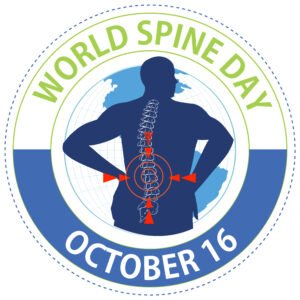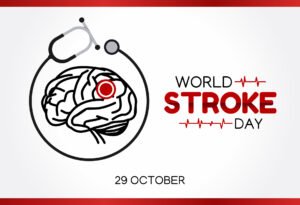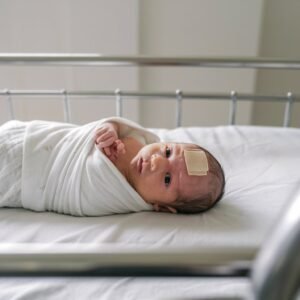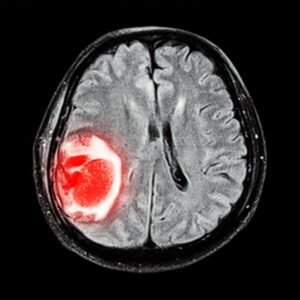
Introduction to Pediatric Brain Injury in India

Pediatric brain injury are a growing concern, especially during the critical developmental years known as the “ABC Years” (Ages Birth to Childhood). In India, with increasing urbanization, road traffic, and crowded living conditions, children face heightened risks of brain injuries due to falls, accidents, and other factors.
This blog aims to spread awareness about Pediatric Brain Injury Prevention among parents and caregivers in India, helping them take proactive steps to protect their children and ensure their well-being.
Understanding the Causes of Pediatric Brain Injury
The causes of brain injuries in Indian children can vary, depending on factors like age and environment. Being aware of these causes can help in taking preventive measures.
1. Falls (Leading Cause for Children Under 5 Years)
In India, homes often have high balconies, uneven flooring, and stairs without railings, making falls a significant risk for toddlers and young children.
- At Risk: Children under 5, particularly in households with limited childproofing.
- Common Scenarios: Falls from beds, stairs, balconies, and playground equipment.
Prevention Tips:
- Install safety gates at the top and bottom of stairs.
- Ensure windows and balconies have secure railings.
- Always supervise young children in play areas.
2. Road Accidents (Common for Ages 5-14)
India’s traffic congestion and lack of child safety measures in vehicles increase the risk of brain injuries among children aged 5-14. Children riding unrestrained in cars or on two-wheelers are particularly vulnerable.
Prevention Tips:
- Always use age-appropriate car seats or seat belts for children.
- Ensure children under 12 sit in the back seat.
- On two-wheelers, children should always wear helmets.
3. Sports Injuries
As sports participation grows in India, particularly in schools, sports-related brain injuries are becoming more common. Contact sports like cricket, football, and cycling can lead to concussions if children don’t wear protective gear.
Prevention Tips:
- Equip children with proper helmets, knee pads, and other protective gear.
- Ensure they are supervised during sports, especially high-contact games.
- Teach children the importance of safety rules during play.
4. Abuse (Shaken Baby Syndrome)
Sadly, physical abuse remains a cause of pediatric brain injury in India. Shaken Baby Syndrome, caused by violently shaking a child, is particularly dangerous for infants.
Prevention Tips:
- Educate caregivers about the dangers of shaking infants.
- If a baby is crying excessively, take breaks and seek support instead of shaking the baby.
Recognizing Brain Injury Symptoms in Children
Brain injuries in children may not always be immediately apparent. It’s important to look out for these common symptoms following an accident:
- Physical Symptoms: Persistent headaches, dizziness, nausea, difficulty balancing.
- Cognitive Symptoms: Memory issues, trouble concentrating, or confusion.
- Behavioral Symptoms: Mood swings, irritability, anxiety, or depression.
If your child exhibits any of these symptoms after a fall, accident, or trauma, consult a doctor immediately for a thorough evaluation.
Prevention Strategies for Indian Homes
Given the unique risks that Indian households and environments pose, the following strategies are recommended to minimize the chances of brain injuries in children:
1. Home Safety for Infants and Toddlers
Indian homes often have unprotected balconies, stairs, and furniture that can pose a danger to children.
Safety Measures:
- Use child safety locks on windows and balcony doors.
- Install sturdy railings on balconies and stairs.
- Avoid leaving infants unattended on furniture, beds, or high surfaces.
2. Motor Vehicle Safety
India’s road safety culture often neglects the importance of proper child restraints in vehicles. Ensuring your child is safely secured can reduce the risk of brain injuries in case of accidents.
Safety Measures:
- Always use certified car seats and seat belts for your child based on their age and weight.
- Avoid placing children in the front seat, especially in cars with airbags.
- Make helmet-wearing mandatory for children on two-wheelers.
3. Playground and School Safety
Many playgrounds and schools in India lack soft flooring or proper supervision during playtime, increasing the risk of injury.
Safety Measures:
- Ensure that playgrounds have soft, shock-absorbing surfaces like sand or rubber.
- Encourage schools to mandate safety gear for sports and physical activities.
4. Dealing with Shaken Baby Syndrome
This condition often arises when caregivers are overwhelmed. Educating families about how to handle crying infants can reduce this risk.
Safety Measures:
- If feeling overwhelmed by a crying baby, place them in a safe area and take a few moments to calm down.
- Seek help from family members or neighbors if needed.
Post-Injury Care: What to Do After a Brain Injury
If your child sustains a brain injury, immediate care is crucial. Depending on the severity, you may need medical interventions such as physical rehabilitation, speech therapy, or psychological counseling.
Steps to Take:
- Medical Assessment: Visit a pediatrician or neurologist immediately after the injury.
- Rehabilitation: Children may require physiotherapy, occupational therapy, or cognitive rehabilitation depending on the injury.
- Educational Support: Collaborate with schools to create a support plan for your child’s return to the classroom. An Individualized Education Plan (IEP) may be needed for ongoing educational support.
Recent Posts



The Importance of Early Stroke Detection in World Stroke Day 2024

Pediatric Brain Injury: Prevention and Care During the ABC Years

Love Your Spine,Live Your Life: A World Spine Day Detailed Guide to Painless Future!

Brain Tumor Awareness: What People Must Know for Early Detection
Have Any Questions?
Please contact clinic number to know about doctor’s availability & Appointments
- +91-6369870503
- 0427-4517636




